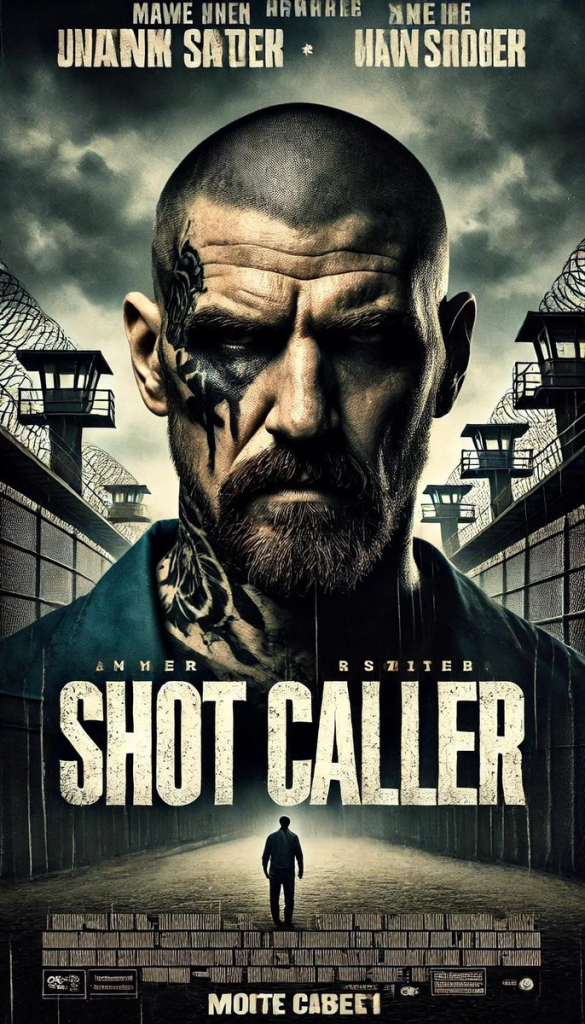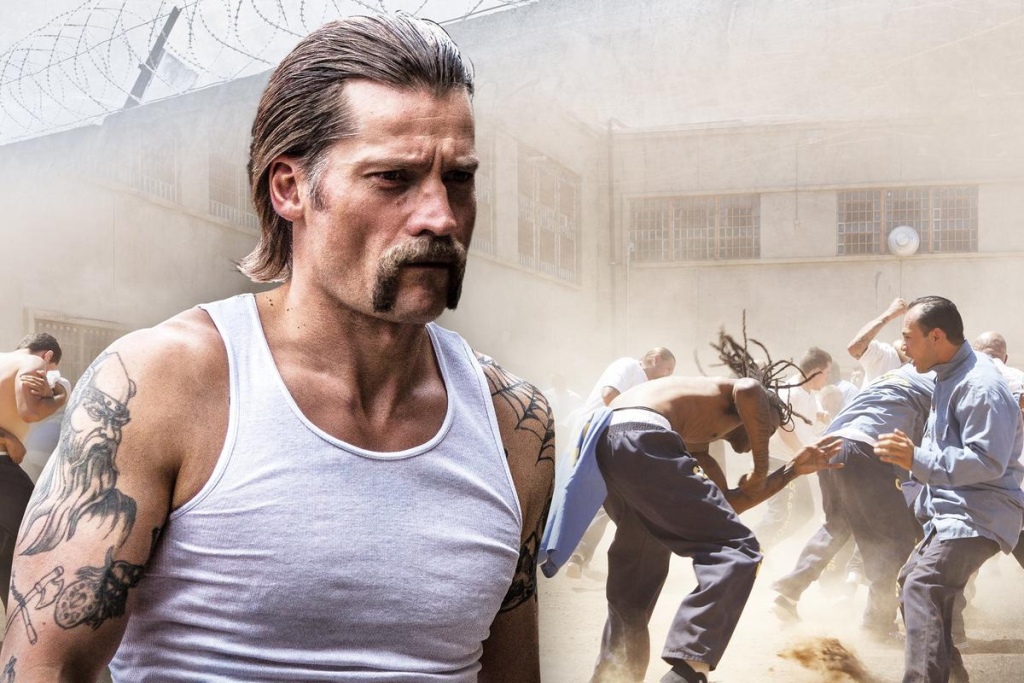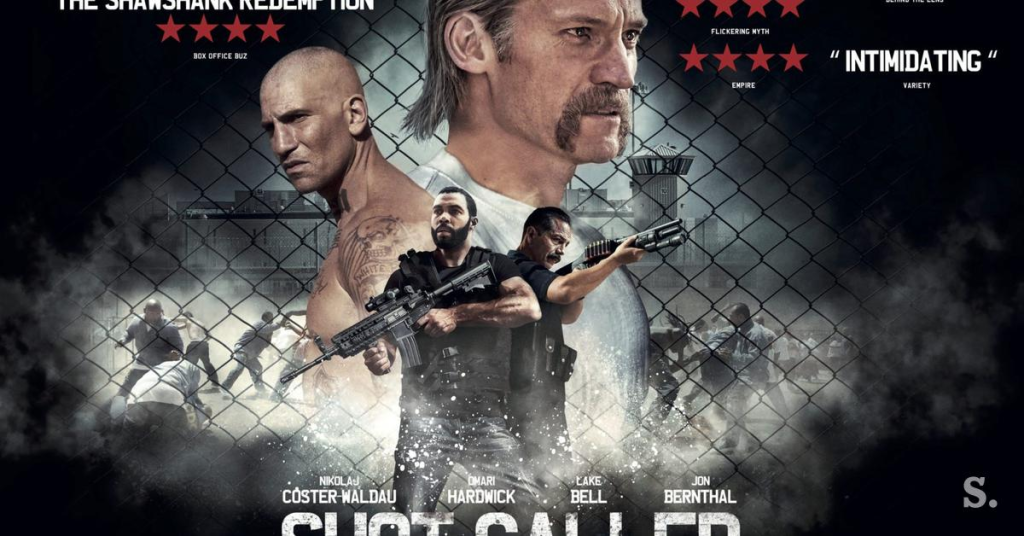Shot Caller (2017)

Introducing Shot Caller (2017) – A Gritty Exploration of Crime and Redemption
Overview
Shot Caller (2017) is a riveting American crime thriller that delves into the harrowing transformation of a man thrust into the brutal world of prison life and gang culture. Directed and written by Ric Roman Waugh, known for his gritty, realistic portrayals of law enforcement and incarceration in films like Felon (2008) and Snitch (2013), Shot Caller stars Nikolaj Coster-Waldau in a career-defining performance as Jacob “Money” Harlon. The film explores themes of survival, identity, and the irreversible consequences of choices made under pressure, set against the stark backdrop of California’s prison system and its ties to organized crime.
Produced by Bold Films and Participant Media, Shot Caller premiered at the Los Angeles Film Festival on June 16, 2017, before a limited theatrical release on July 7, 2017, and a wider video-on-demand rollout. Despite modest box office returns, the film garnered critical acclaim for its unflinching narrative, Coster-Waldau’s nuanced performance, and Waugh’s meticulous attention to the realities of prison gang dynamics. This article provides a comprehensive introduction to Shot Caller, covering its origins, plot, cast, production, themes, reception, and lasting impact.

Origins and Development
Ric Roman Waugh, a former stuntman turned filmmaker, drew inspiration for Shot Caller from his extensive research into the American prison system and its intersection with gang culture. Having worked as a volunteer parole officer and consulted with law enforcement for his earlier films, Waugh aimed to craft a story that authentically captured the psychological and societal toll of incarceration. The script for Shot Caller evolved from his desire to explore how an ordinary individual could be reshaped by the dehumanizing environment of prison, particularly through the influence of white supremacist gangs like the Aryan Brotherhood.
Development began in the early 2010s, with Waugh collaborating with producers Michel Litvak and Gary Michael Walters of Bold Films, who had backed his previous work. The project gained momentum when Nikolaj Coster-Waldau, fresh off his rising fame as Jaime Lannister in HBO’s Game of Thrones, signed on to star and serve as an executive producer. Coster-Waldau was drawn to the role’s complexity, describing it as a chance to portray a character whose moral descent was both tragic and compelling. The film’s $10 million budget reflected its lean, character-driven approach, relying on practical locations and a tight shooting schedule to maximize authenticity.

Plot Summary
Shot Caller follows Jacob Harlon, a successful Pasadena stockbroker with a loving wife, Kate (Lake Bell), and young son, Joshua (Emory Cohen). His idyllic life unravels after a drunken driving accident results in the death of his friend Tom (Max Greenfield), leading to Jacob’s conviction for vehicular manslaughter. Sentenced to 16 months in a maximum-security prison, Jacob is thrust into a violent world where survival hinges on aligning with powerful prison gangs.
To protect himself, Jacob joins the Aryan Brotherhood, adopting the moniker “Money” and undergoing a radical transformation. Under the mentorship of gang leader “The Beast” (Holt McCallany), Jacob becomes a hardened enforcer, committing acts of violence that bind him to the gang’s code. After his release, Jacob is coerced into orchestrating a major arms deal in the outside world, under the watchful eye of his parole officer, Kutcher (Omari Hardwick), and the gang’s enforcer, Shotgun (Jon Bernthal). As the deal spirals into chaos, Jacob grapples with the possibility of reclaiming his humanity and protecting his estranged family, all while navigating the inescapable grip of his criminal ties.
The film unfolds non-linearly, interweaving Jacob’s prison experiences with his post-release struggles, culminating in a gut-wrenching climax that underscores the cost of his choices. The narrative avoids glamorizing crime, instead offering a stark meditation on how systemic forces and personal decisions can trap individuals in cycles of violence.

Cast and Characters
The ensemble cast of Shot Caller delivers powerhouse performances, elevating the film’s raw intensity:
- Nikolaj Coster-Waldau as Jacob “Money” Harlon: Coster-Waldau transforms from a clean-cut family man to a tattooed, stoic gang member, conveying Jacob’s internal conflict through subtle expressions and physicality. His performance anchors the film, balancing vulnerability with menace.
- Jon Bernthal as Shotgun: Bernthal brings volatility to the role of a loyal but volatile gang enforcer, showcasing the charisma and intensity seen in his work on The Walking Dead and The Punisher.
- Lake Bell as Kate Harlon: Bell portrays Jacob’s wife with quiet strength, capturing the pain of a family torn apart by his incarceration.
- Omari Hardwick as Ed Kutcher: Hardwick’s parole officer is a complex figure, torn between duty and empathy, adding depth to the film’s portrayal of the justice system.
- Holt McCallany as “The Beast”: McCallany’s chilling performance as the gang’s leader exudes authority and menace, embodying the prison’s predatory hierarchy.
- Emory Cohen as Joshua Harlon and Max Greenfield as Tom: Cohen and Greenfield round out the cast, with Cohen portraying Jacob’s son, estranged by his father’s actions, and Greenfield as the friend whose death sets the tragedy in motion.
Supporting roles, including Jeffrey Donovan as Bottles and Benjamin Bratt as Sanchez, a rival gang leader, add texture to the film’s depiction of prison dynamics.

Production Details
Filming for Shot Caller took place in 2015, primarily in New Mexico and California, with key scenes shot in authentic prison facilities to enhance realism. Waugh worked closely with former inmates and gang members as consultants to ensure accuracy in depicting prison life, from gang hierarchies to the unspoken rules governing inmate interactions. The production team prioritized practical effects for the film’s violent scenes, using minimal CGI to maintain a visceral feel.
Cinematographer Dana Gonzales, who later worked on Fargo and Crash Pad, employed a muted color palette and handheld camera work to evoke the claustrophobia and tension of Jacob’s world. The film’s score, composed by Antonio Pinto, complements the narrative with haunting, minimalist tones that underscore Jacob’s emotional descent.
Waugh’s directorial approach emphasized character over spectacle, with long takes and intimate framing to highlight Coster-Waldau’s transformation. The non-linear structure was a deliberate choice, allowing viewers to piece together Jacob’s journey while maintaining suspense about his ultimate fate.

Themes and Symbolism
Shot Caller is a profound exploration of identity, morality, and the dehumanizing effects of the prison system. Key themes include:
- Transformation and Loss of Identity: Jacob’s evolution from a suburban professional to a gang enforcer reflects the prison’s ability to strip away individuality. His tattoos, shaved head, and adopted persona symbolize his assimilation into a world where survival demands conformity.
- Consequences of Choice: The film underscores how a single mistake—Jacob’s DUI—can trigger a cascade of irreversible consequences, trapping him in a cycle of violence and loyalty to the gang.
- Systemic Failure: Waugh critiques the prison system’s role in perpetuating crime, portraying it as a breeding ground for gang allegiance rather than rehabilitation. Jacob’s inability to escape the gang’s reach post-release highlights the systemic barriers to redemption.
- Sacrifice and Redemption: Jacob’s actions in the film’s climax suggest a desperate bid to reclaim his humanity, even at great personal cost, raising questions about whether redemption is possible in such a unforgiving world.
The film’s title, “Shot Caller,” refers to a gang leader who makes critical decisions, but it also serves as a metaphor for Jacob’s loss of agency—his choices are dictated by the system and the gang, not his own desires.

Reception and Impact
Upon its release, Shot Caller received strong praise from critics, though its limited theatrical run and niche subject matter limited its commercial success. On Rotten Tomatoes, the film holds an 68% approval rating based on 44 reviews, with critics lauding its authenticity and Coster-Waldau’s performance. Roger Ebert’s website awarded it 3.5 out of 4 stars, calling it “a brutal, uncompromising look at the prison system’s impact on the human soul.” The New York Times praised Waugh’s direction, noting that the film “avoids sensationalism in favor of a slow-burn tragedy.”
Audience reactions were similarly positive, with the film earning a 70% audience score on Rotten Tomatoes and a 7.3/10 on IMDb. Fans appreciated its intense pacing, realistic portrayal of prison life, and Coster-Waldau’s departure from his Game of Thrones persona. However, some criticized the film’s bleak tone and lack of hope, arguing it leaned too heavily into despair.
Commercially, Shot Caller grossed under $3 million worldwide against its $10 million budget, reflecting its limited release and competition with summer blockbusters. However, it found a second life on streaming platforms like Netflix, where it gained a cult following among fans of crime dramas like Ozark and Breaking Bad.

Cultural Significance and Legacy
Shot Caller stands out in the crime thriller genre for its unflinching portrayal of prison gang culture and its refusal to romanticize its characters’ actions. Unlike films that glorify criminal life, such as The Godfather or Scarface, Shot Caller presents crime as a trap, with no easy victories or glamorous rewards. Its focus on white supremacist gangs, while controversial, sheds light on a rarely explored aspect of prison dynamics, handled with care to avoid sensationalism.
The film also contributed to the growing recognition of Nikolaj Coster-Waldau as a versatile leading man, paving the way for his roles in projects like The Silencing (2020) and Against the Ice (2022). For Ric Roman Waugh, Shot Caller solidified his reputation as a filmmaker unafraid to tackle tough subjects, leading to his work on Angel Has Fallen (2019) and Greenland (2020).
In the broader context of 2010s cinema, Shot Caller aligns with a wave of gritty, character-driven crime dramas that prioritize realism over escapism, alongside films like Hell or High Water (2016) and Wind River (2017). Its exploration of systemic issues in the justice system remains relevant, sparking discussions about prison reform and recidivism.

Release and Availability
Shot Caller debuted in a limited theatrical release in the United States on July 7, 2017, through Saban Films, followed by a video-on-demand release on August 18, 2017. It was later released on DVD and Blu-ray, with special features including behind-the-scenes interviews with Waugh and Coster-Waldau. As of May 2025, the film is available for streaming on platforms like Netflix (in select regions), Amazon Prime Video, and Hulu, as well as for digital purchase or rental on Apple TV, Google Play, and Fandango at Home.
The film’s accessibility on streaming has broadened its reach, making it a staple for fans of intense, thought-provoking thrillers. Its runtime of 2 hours and 1 minute and R rating (for strong violence, language, and some drug use) position it as a mature, uncompromising viewing experience.

Conclusion
Shot Caller (2017) is a masterful crime thriller that transcends its genre trappings to deliver a profound commentary on identity, choice, and the prison system’s lasting impact. Ric Roman Waugh’s direction, coupled with Nikolaj Coster-Waldau’s transformative performance, creates a film that is both visceral and introspective, forcing viewers to confront uncomfortable truths about survival and morality. While its bleak narrative may not appeal to all, its authenticity and emotional depth make it a standout in the modern crime drama landscape.
As a meditation on the cost of one’s actions and the possibility—or impossibility—of redemption, Shot Caller remains a powerful testament to the human capacity for change, even in the darkest of circumstances. For those seeking a film that challenges, provokes, and lingers long after the credits roll, Shot Caller is an essential watch.